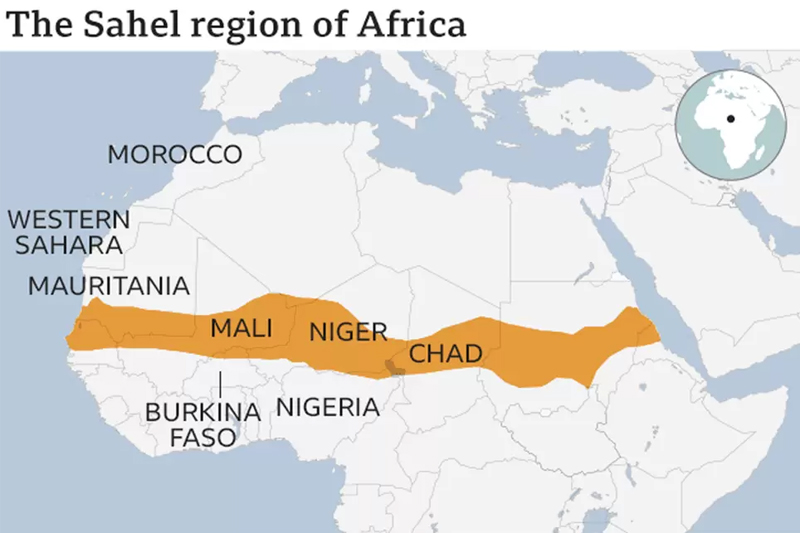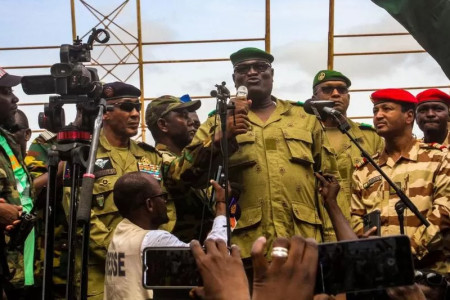Acting Deputy Secretary of State Victoria Nuland said the conversations had been "extremely frank and at times quite difficult".
Washington has said the coup can still be ended diplomatically and President Mohamed Bazoum reinstated, but has suspended aid payments in the meantime.
West African countries are set to meet on Thursday to discuss the crisis.
Ecowas - a trading bloc of 15 West African states - had issued a 23:00 GMT Sunday deadline to Niger's junta leaders to stand down and restore the elected president.
The coup leaders responded to a threat of military action from the bloc by closing Niger's airspace.
Speaking to reporters from capital Niamey, Ms Nuland said that, in talks lasting more than two hours, the US had offered its help "if there is a desire on the part of the people who are responsible for this to return to the constitutional order".
"I would not say that we were in any way taken up on that offer," she said.
Ms Nuland said she had met the new military chief of staff, Brigadier General Moussa Salaou Barmou, but not with Niger's self-proclaimed new leader, General Abdourahamane Tchiani, or with Mr Bazoum.
Mr Bazoum remains in detention but has previously spoken to US officials by phone.
Ms Nuland said she also raised concerns over claims the coup leaders had asked Russia's Wagner mercenary group for help in maintaining control of the country.
"The people who have taken this action here understand very well the risks to their sovereignty when Wagner is invited in," she said.
Gen Tchiani, a former chief of the presidential guard to Mr Bazoum, seized power on 26 July, saying he wanted to avert "the gradual and inevitable demise" of Niger.
The growing instability in the region compelled former colonial power France on Monday to warn its citizens against travelling to the Sahel region, and for those still there to be cautious due to anti-France sentiment.
"It is essential to limit travel, to stay away from any gatherings and to keep themselves regularly informed of the situation," read a statement from the foreign ministry.
The junta in Niger on Sunday said it had information that "a foreign power" was preparing to attack the country, following reports that military chiefs from Ecowas had drawn up a detailed plan for use of force.
Earlier, Abdel-Fatau Musah, Ecowas' commissioner for political affairs, peace and security, said that while "all the elements" had been worked out about an "eventual intervention", the body wanted "diplomacy to work".
Over the weekend Nigeria's Senate discussed the situation in Niger after President Bola Tinubu wrote to it about the Ecowas resolutions imposing sanctions and the possible use of military force.
Local media report there was strong opposition to military intervention, especially from senators representing states near the long border the two countries share.
President Tinubu has been especially vocal in demanding that the Niger military leave power and has threatened to use force if they do not - but he needs approval from the National Assembly for any foreign military intervention.

The coup leaders seem to be showing no sign of willingness to cede power, and on Sunday thousands of their supporters rallied defiantly at a stadium in the capital Niamey.
Niger is a significant uranium producer - a fuel that is vital for nuclear power - and under Mr Bazoum was a key Western ally in the fight against Islamist militants in West Africa's Sahel region.
By Kathryn Armstrong in London & Nduka Orjinmo in Abuja


